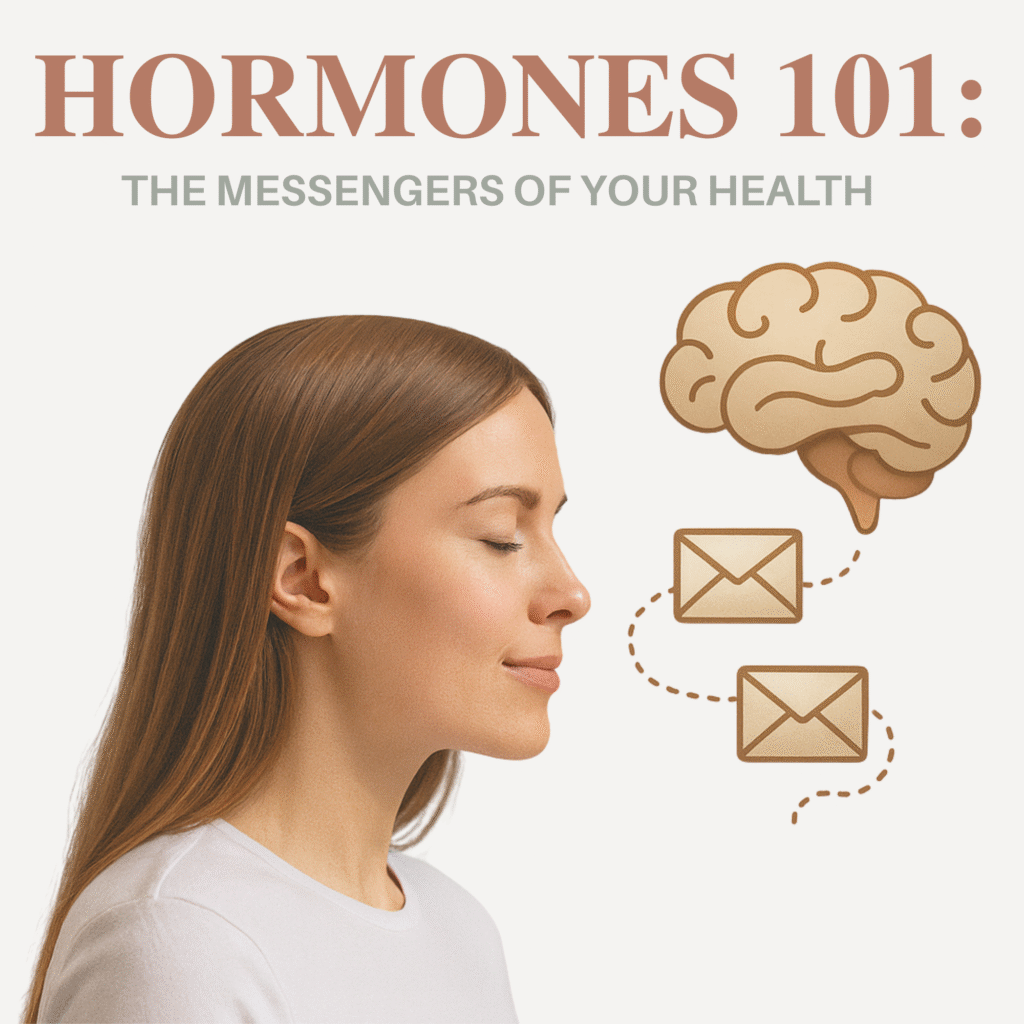
Have you ever felt like you’re on a hormonal roller coaster?
One day you have endless energy, and the next you can’t seem to shake off a constant feeling of fatigue. You might have noticed frustrating changes in your weight, sleep, or mood that don’t seem to have a clear cause.
If this sounds familiar, you’re not alone. So many people are experiencing the impact of imbalanced hormones, often without even realizing it. But what are hormones, and why do they play such a huge role in how we feel?
Meet The Messengers
Think of your hormones as tiny, powerful messengers. They are chemical signals created in your endocrine glands that travel through your bloodstream, carrying crucial instructions to every cell and organ in your body. They are the communication network for everything from your metabolism and sleep cycles to your mood and energy levels. When these messengers are in balance, everything works in harmony. But when the messages get crossed or slowed down, you can start to feel “off”.
How Hormonal Imbalance Shows Up
Because hormones are involved in virtually every bodily function, an imbalance can present itself in a wide range of symptoms. You might be surprised to learn that these common issues can often be traced back to your hormone levels:
- Energy & Fatigue: Hormones like cortisol (the stress hormone) and thyroid hormones directly regulate your energy production. If they’re out of whack, you might experience chronic fatigue, no matter how much you sleep.
- Weight Gain: You might hear people say, “It’s all about calories in, calories out,” but the truth is far more complex. Hormones are the true regulators of your appetite and metabolism. Here’s a quick look at three of the biggest players:
- Insulin: This hormone acts like a key, letting sugar from the food you eat enter your cells for energy. When your body becomes resistant to insulin, it can make it harder to burn fat for fuel, often leading to stubborn weight gain, especially around your belly.
- Ghrelin: Known as the “hunger hormone,” ghrelin is what tells your brain when it’s time to eat. An imbalance can cause you to feel hungry even after you’ve eaten a meal, making it hard to feel satisfied.
- Leptin: This is your “fullness hormone.” It’s produced by fat cells and signals your brain when you’ve had enough to eat. If your body becomes resistant to leptin, your brain won’t get the message that you’re full, which can lead to overeating.
- Mood & Emotional Well-being: Your mood is deeply influenced by hormones like serotonin and dopamine. When their levels are irregular, it can lead to irritability, anxiety, and even feelings of depression.
- Sleep: Hormones are the conductors of your internal clock. Hormonal imbalances can disrupt your sleep patterns, leaving you tossing and turning at night and feeling groggy all day.
Why We Take Hormone Health Seriously
At New Beginnings Wellness, we know these symptoms are not “just a part of getting older.” They are signals that your body needs support, and we’re here to provide it. Our owner, Amanda, started this clinic because she saw firsthand that hormone health wasn’t being taken seriously enough. She is passionate about empowering people to understand their bodies and find true, lasting wellness. We believe that by listening to your body’s messengers, you can unlock a new level of health and vitality.
Ready for a new beginning? Contact us today to learn more and schedule a consultation.
Call Us: (419) 847-3458
Call Us: (419) 847-3458
Or, visit our Contact Page: nbwclinic.com/contact-us
Tagged Hormone Health, Hormone Imbalance, Hormones, Sylvania Ohio, Wellness

